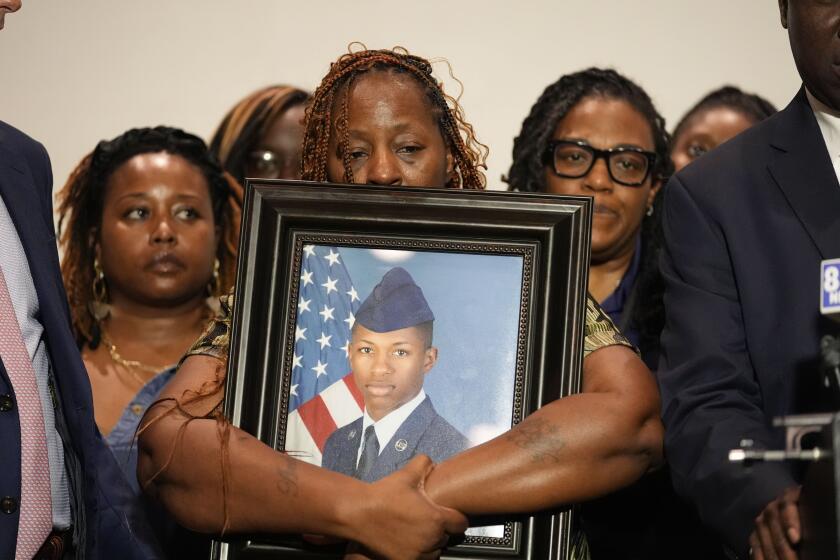Giving Hate Crimes Due Notice
The federal government collects voluminous statistics on an abundance of activities. Is there any need to extend that list by adding to it information on the specific incidence of hate crimes? There is, because hate crimes are indications of a social pathology that represents a clear and present danger to public safety and welfare. Hate crimes seem to be on the rise, but no one knows for sure because no comprehensive collection of data takes place. That will soon be remedied. Both houses of Congress have now passed the Hate Crimes Statistics Act. The measure has President Bush’s support. Soon it should be possible to get a clear understanding of just how widespread hate-related incidents are.
Under the bill approved by the Senate last week--the House passed a similar version last June--the attorney general would be required to keep statistics on crimes motivated by race, religion, sexual orientation or ethnicity. Among the crimes to be counted are murder, assault, arson, robbery, theft, threats and vandalism. Reports on these crimes can easily be gathered by the Federal Bureau of Investigation as part of its regular Uniform Crime Report survey of nearly 16,000 law enforcement agencies. The bill has been strongly backed by civil rights, ethnic and law enforcement organizations.
Hate crimes, the Justice Department noted in a 1988 report, “are far more serious than comparable crimes that do not involve prejudice because they are intended to intimidate an entire group.” That point--that hate crimes have a multiplier effect, with a single incident capable of affecting many people--is of supreme importance. Are hate crimes on the rise, and if so, what patterns can be discerned, what groups in society might be most at risk? Before long, thanks to this necessary legislation, law enforcement officials and the public should begin to get some credible answers.
More to Read
Start your day right
Sign up for Essential California for news, features and recommendations from the L.A. Times and beyond in your inbox six days a week.
You may occasionally receive promotional content from the Los Angeles Times.






